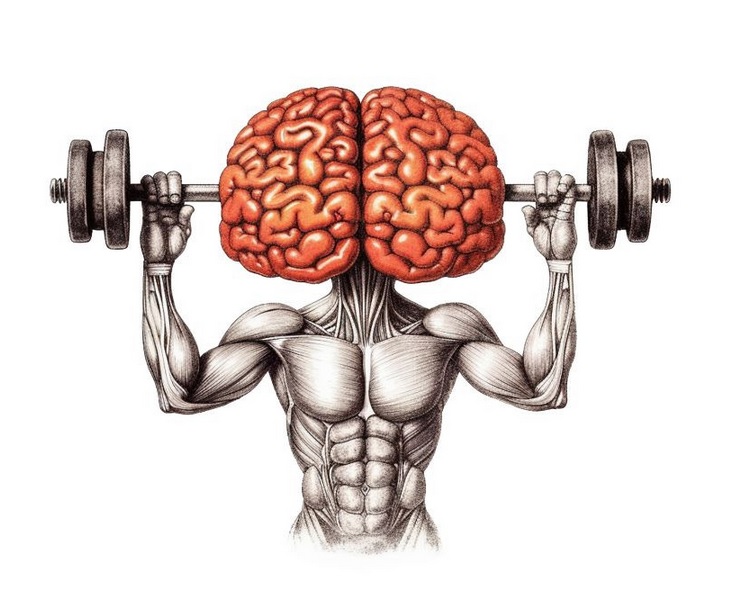It would be fair to say that at present there is a physical and cognitive health revolution going on across the world. Science on nutrition, exercise and sleep has progressed leaps and bounds with good amount of primary research to back the claims. And thanks to the podcast revolution the information is available to people on their fingertips. Podcasts such as the Huberman lab is a goldmine of information and protocols which means people are much more informed and can make better decisions to lead healthier lives.
Chasing Metrics: A higher focus on healthier habits is great for general well-being of our society but this abundance of knowledge has led to so many rules around “how to live, eat, breathe, work and sleep”. There are ample examples around us of people measuring and tracking everything from calories consumed, exercise time, sleep time, poop color and what not. From time of waking up, how much sunlight you get, coffee you can consume and until what time, food choices, exercise routines to hit zone 2 workouts, supplements to consume or choice of mattress for better sleep the list is endless. Once you start going down the rabbit hole it is easy to get consumed without realizing why you started the health journey in the first place. It is a fun game of chasing metrics with a positive impact on our “visible” physical health. We have people like Bryan Johnson who are taking it much further in the quest of living healthier and longer.
Importance of emotional health: Overall, I believe being conscious about our choices and their impact on our health is a positive development. But I do wonder that at what point we should draw the line. As a species we typically go overboard with anything new and exciting. And longevity seems to be the new game in town. However most of the focus of the current set of tools is on improving physical fitness and to an extent cognitive fitness as we age. Understanding the impact of all the changes on mental/emotional fitness is much harder as there is no metrics to track it on a day to day basis. It is much more difficult to interpret and measure. And therefore, we keep chasing what is visible.
I can share my own example to illustrate. Few years back I got very interested in the concept of intermittent fasting and its positive impact on health. Tracking number of hours fasted became a game for me and I had to do well at the game. Going from 14 to 16 to 18 hours was progress. I didn’t even stop to ask what is the difference between fasting for 14 hours vs. 18 hours. My conscious brain assumed that fasting is good and therefore more fasting would be amazing. In this whole chase what got compromised were the eat out dates with my wife. Time which we got to spend together away from the kids, work and house responsibilities. It was our couple of hours of being kids again, talking and eating our favorite cuisines. Couple of weeks not going out pinched but then we got into our regular routines and filled those slots with more busy work. Until one day we both realized how precious were those couple of hours to help us manage the rest of the week and keep stress levels down. We did catch the gap in-time and I made amends as I myself couldn’t answer why I was chasing those goals at the cost of spending quality time with my family which is important for our overall health. This is a small example but I hope you get the drift.
I believe taking care of emotional health is as important as physical health, but much more complex since a large part of managing it is hidden in our sub-conscious. To access the sub-conscious requires regular internal reflection through mediums like meditation, journaling or speaking with mentors. I wonder about the long term emotional impact of not letting the inner child let go from time to time. For example, have that pizza or ice cream once in a while with friends and not feeling guilty about it. Or that glass of wine when meeting an old friend. Being robotic about every part of the day just because science says so just doesn’t seem like living. I understand there is a thin line for doing it right. You go over board and then it shows an impact on your body but I think completely neglecting the emotional self in the quest of the physical may not be the right solution either.
Chasing Balance: Instead, I think there is a middle ground or zone in which a confluence of physical and emotional health can be achieved. Each person should have their own definition of this zone of optimal health. This definition could atleast include the foundational aspects like physical health, work, family and relationships. If you consider life as an orschestra, you are the conductor of your life and each of the foundational aspects are performers in your orchestra which help you live a good life. To get into a good rhythm or play beautiful music all these key parts need to be in synergy. And this synergy is unique to each person depending on their life situation and their own definition of success. My point is don’t prioritize one aspect of your life so much that you neglect other key aspects which are as important. For our parent’s generation it was probably “Work” and for us it seems to be “looking good and being physically strong”. Let’s be mindful.




